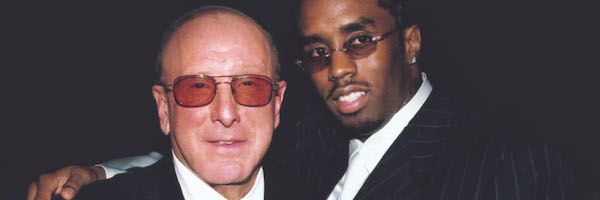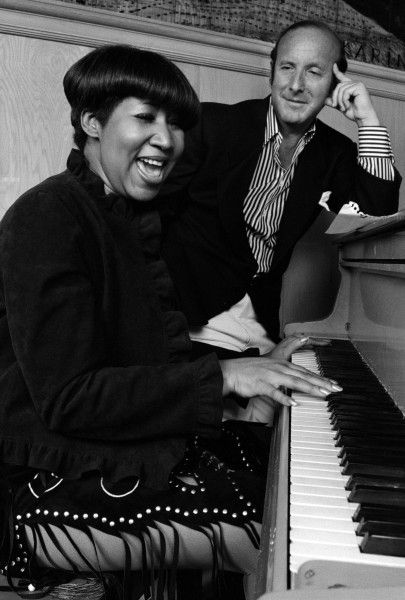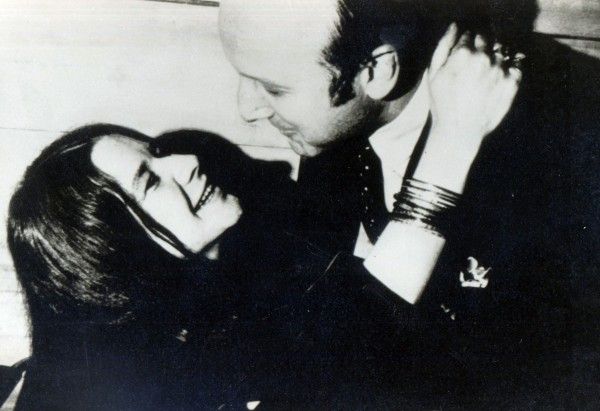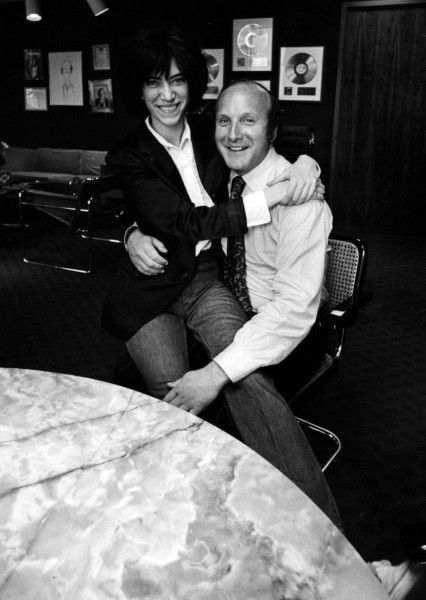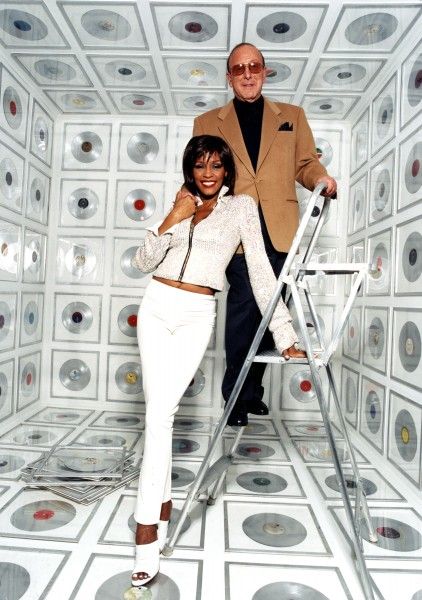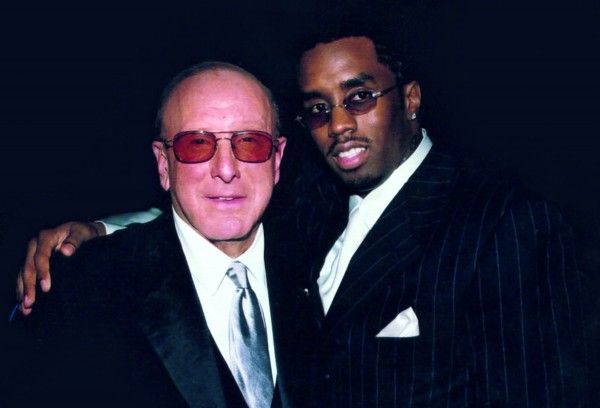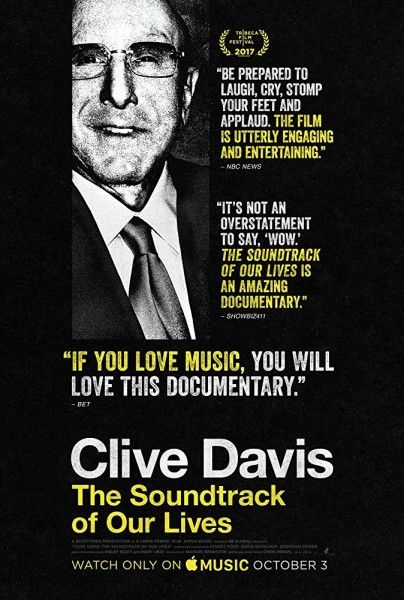Directed by Chris Perkel, the documentary Clive Davis: The Soundtrack of Our Lives is a fascinating and compelling look at record executive and producer Clive Davis’ journey through his astonishing five-decade career as the world’s preeminent hit-maker. Through triumphs and tragedies, Davis persevered, all while having the vision to introduce such musical superstars to the world as Janis Joplin, Bruce Springsteen, Whitney Houston, Patti Smith, Aerosmith, Alicia Keys, Barry Manilow and The Notorious B.I.G. and doing so with the respect of those artists, as well as those who worked for him.
Collider recently had the opportunity to meet with Clive Davis in his room at the Beverly Hills Hotel for a lengthy 40-minute chat, where we talked 1-on-1 about getting to see the tremendous success he’s experienced all laid out in one film, what it’s like to be called “the greatest record man of all time,” never having had a career plan, being hands-on with his artists, signing Janis Joplin as his first recording artist, being witness to the tremendous rise and tragic fall of Whitney Houston, matching the right artist with the right song to make a big hit, and having created such an incredible legacy.
Collider: You’ve had tremendous success in the music industry and you’ve discovered so many artists who have also had tremendous success. What’s it like to see it all together, in one place with this film?
CLIVE DAVIS: It’s always an emotional experience. This is totally something that got produced, directed and released without me. I only was interviewed for it. I didn’t ever speak to anybody that was interviewed for it, before or after their interview. I didn’t suggest names. They did it on their own. When I first saw it, the strongest emotional experience was the affirmation that the special contact and years that I spent with so many of these artists, which was several decades ago, was as meaningful for them as it was for me. If you write a book, there can always be a skeptic media person saying, “Did he slant it? Did he exaggerate it? Is this accurate?” You can’t say that when the artists, themselves, are speaking on camera, voluntarily, and giving of their time.
In the film, Aretha Franklin calls you “the greatest record man of all time.” Do you feel like the greatest record man of all time?
DAVIS: I never think about that. I do think that when I see the span of what was done, and being a participant in the rock revolution, and being aware and involved in the hip-hop revolution, and being a part of the pop world and the great songs, I know that I was right there, in an incredible role, over these last 50 years. So, I am proud of the fact that this documentary can hold up to being a study of what’s happened in contemporary music, over this 50-year period. How that ranks, or what that does, I just feel blessed, grateful and proud of the fact that I was there, with so many seminal artists. It wasn’t just one song, one record or one format. I’m so proud that today, all these years later, not only were they not one-hit wonders, but Billy Joel, [Bruce] Springsteen, [Carlos] Santana, Aretha, [Barry] Manilow, and I could go on, are filling stadiums and arenas, all over the world. I know that’s special. These artists have such genius within themselves.
Why was it so important for you to be so hands-on with your artists?
DAVIS: After I founded Arista and wanted it to be an instant major label, you couldn’t do it just by signing self-contained artists. So much of the audience is dependent on the hit single. They won’t admit to it and they’ll make fun of it, but without it, commercially, you’ll do a fraction of what you could do. I didn’t just sign Whitney [Houston]. I found every song she every recorded. I was a part of these artists’ creative arsenal. It wasn’t just a professional relationship. With some of them, we ended up bring creative partners. You can be a great actor or actress, but without the right property, you don’t have a chance to showcase what you can do. It’s the same with a vocalist. You’ve gotta have those songs, and they can qualify to be the soundtrack of our lives. There are 135 music cues in this film, with songs that are truly unforgettable. That’s a lot of great music.
Are you someone who can enjoy and revel in success, or do you focus more on the failures?
DAVIS: No, I don’t concentrate on the failures or false expectation of a particular artist. I do concentrate on what is required to be “successful.” I never come with a full sense of arrogance or expectation. They’re not gonna play my record because I discovered [Janis] Joplin or Springsteen. You’ve gotta earn it. I have a very healthy respect for failure. That’s my motto. Losing my parents, I had to maintain an A-average to keep scholarships. I never could have stayed at NYU or Harvard Law, if I didn’t maintain that average. So, it’s my work ethic, my preparedness, my worry about going over the hill, and keeping my ear current. I concentrate on the worry of not being a failure and what it takes to make it. I think doing that in school and for all these years has served me well, in making sure that I’m prepared.
Since this was a profession that found you, as opposed to you finding it, did you get to a point where you set yourself a career plan, once you realized it was something you had an instinct for?
DAVIS: Did I have a career plan, at all? No, I didn’t. It was a lucky break. Since I had no money and my father was an electrician, and my parents died when I was 18, my only career plan was that, in Jewish families of that era, if you did well academically, you would either be a doctor or a lawyer. Medicine never interested me, so I was gonna be a lawyer, not even knowing what a lawyer’s life is. That was my goal to get me out of the streets, so to speak, and I did it. Finding out that I was at the firm where a client was Columbia Records was such a lucky break. I was doing non-litigation work for the entertainment company. I had no relationship to records or music, but that got me my job. When I got that job, I went back to law school and took special courses in copyrights and unfair competition, to be the best lawyer that I could. If I was working on a Broadway show contract, I was there on opening night. I didn’t want to be a lawyer practicing from an ivory tower. I wanted to understand the underlying business, so I listened. I was not a musician. I still can’t read music, at all. I just wanted to be the best lawyer that I could. I never could have imagined that I’d become the head of Columbia Records.
How many times, over the years, did people try to convince you to doubt your own instincts, and how did you tune all of that out and trust your gut?
DAVIS: No one has tried to talk me out of things because of my track record. After Janis Joplin, factually, I just kept on doing it. I signed Chicago, Santana, Aerosmith, Billy Joel, Springsteen. Even if they didn’t take off right away – Springsteen made it on his third album – people knew they were different, unique and special. The truth is that I was on a roll. If I didn’t know how to get into R&B music, I turned to [Kenneth] Gamble and [Leon] Huff. I bet on the right team. I didn’t have to overcome someone trying to dissuade me because the record spoke for itself.
You’ll always be thought of in connection with Whitney Houston. Was it immediate for you, when you heard her voice?
DAVIS: It was a combination of things. It was also her beauty. She was gorgeous. The footage in the film of her singing on The Merv Griffin Show was two weeks after I signed her, and that was exactly the way she looked and exactly the way she sang, when I signed her in 1983. She was so natural. Her interpretive genius was there, and she was a beauty. She could whip up that energy and stun you by the notes she could reach. After that performance, there’s film of me saying, “If there is an artist for the next generation, like Lena Horne, who was a pioneer, or Dionne Warwick, it would be Whitney Houston.” I would not have made that prediction, if I was not blown away. You don’t get to see the progression in the tabloid stories in documentaries because they’re about Bobby Brown and the like. They weren’t there during these years. In this film, you see her go from one hit to another. In every aspect of it, she was incredible. Yes, you must, as this film does do, communicate the tragedy of when she turned into a skeleton from the impact of drugs, but you also have to show the magnitude of her impact on the world and the totally in-command things that she brought. I’m proud that this documentary pulls no punches and communicates the depth of the tragedy, but also provides the magnitude of her talent. That’s what leads to the sobs and the crying at the end, with the tragic loss of her.
When you care about your artists as deeply as you do and you take as much time and care with them, how hard is it for you to watch their demons be their ultimate demise?
DAVIS: You could be a parent and close to your child, and not know or see, or be in denial about what that person so close to your heart is really doing. It’s usually underestimating that it’s overtaken someone and not appreciating the danger of it. She did fight it, I know that.
What do you remember about that first time you saw and heard Janis Joplin, and what was it that made you know instantly that you’d found something that would be so long-lasting?
DAVIS: I never saw anyone like her before. I knew she was unique. Her rawness was unique. It was an asset, not a liability. Even in the brief touches on her music in the film, you haven’t seen anyone like that. I just knew, in my every fiber. Whatever it is, every fiber within me said, “This is a special, unique artist.” I had to trust my instinct and go for it. I had no one to consult with, but I went for it.
You have a real talent for matching the right song with the right artist. How many songs did you typically have to sift through?
DAVIS: A tremendous number. I was the publishers’ darling. Word got out that I was looking, so I got a backlog. I found 90% of the hits for Air Supply. I found two of the big four hits for the nine million selling Ace of Base. There were many artists that I matched with songs. I was a creative collaborator with a number of major artists.
Your family is in this documentary, as well, and we get to hear from, talking about your career and accomplishments. What does legacy mean to you?
DAVIS: It’s a very, very powerful legacy. This film touches on every base and doesn’t sugarcoat anything. The gratification, when I formed J Records, the top executives, all of whom had families, all came with me. Overnight, J became Arista. You can be a tough task-masker, but if you’re fair and they feel like they’ve got a creative leader, then they’ll follow you. It was incredibly satisfying that 18 out of 18 executives came with me. They believed in me, they entrusted themselves and their families to me, and even though I had high standards, I was fair.
Do you still enjoy music as much now, as you did when you started this journey?
DAVIS: I enjoy it, thoroughly. I still love it, very much.
Clive Davis: The Soundtrack of Our Lives is available to stream exclusive via Apple Music.

